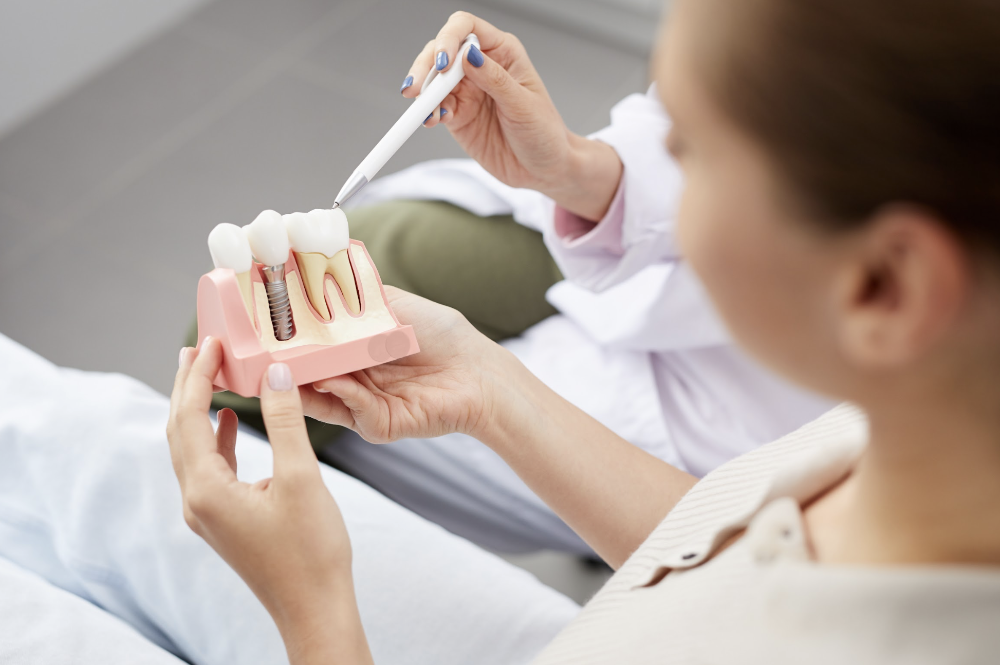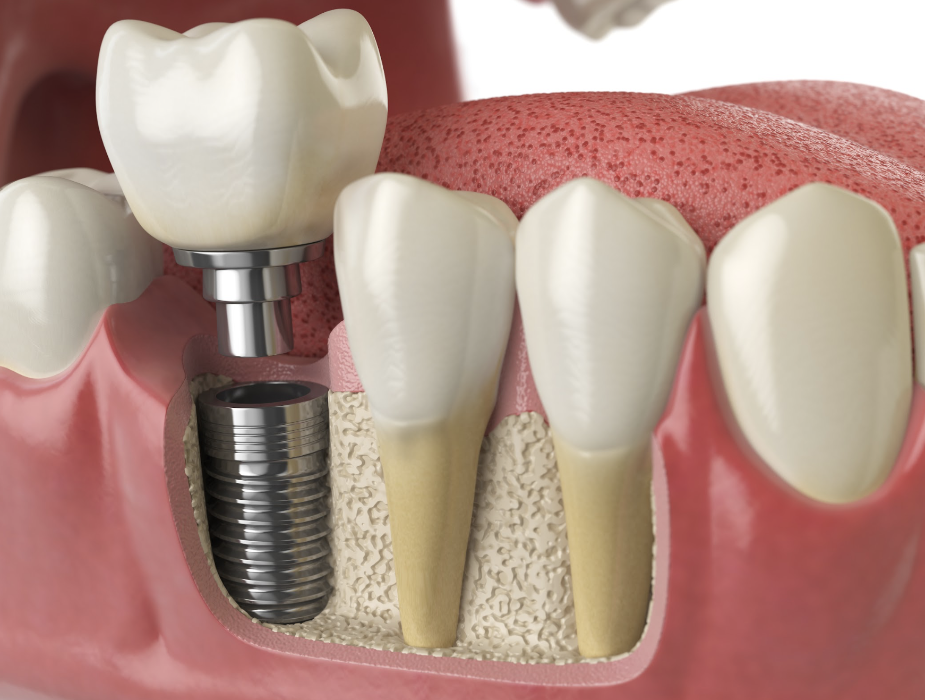Dental Implants
Dental implants are a long-term solution to tooth loss and are the replacement that dentists most often recommend with good reason!
Unlike dentures or partials, you won’t experience problems with slipping or sliding, and implants don’t require a specialized daily care routine beyond regular brushing and flossing. We do not need to alter existing, healthy teeth with dental implants; in fact, we can support a dental bridge with implants for fewer adjustments during a more complex restoration.
Do I Need Dental Implants?
For many people, missing teeth present a mostly cosmetic problem, which is a legitimate concern: Missing teeth carry a stigma, and people with missing teeth may find themselves unfairly judged in many social settings.
Unfortunately, the problem of missing teeth goes beyond cosmetic. Missing teeth put additional stress on your remaining teeth, leading to damage such as fractures and even further tooth loss. When you have tooth loss, you may find it difficult or even painful to enjoy the fresh, healthy foods you need for proper nutrition and nourishment.
Even more concerning, one or more missing teeth can eventually lead to significant bone loss in your jaw as the bone atrophies from lack of use. Over time, jawbone loss leads to visible changes in your face and causes a prematurely aged appearance.
Dental implants will stop bone loss in its tracks, which even dentures and partials cannot do.
Am I a Good Candidate for Dental Implants?
While most healthy adults are eligible for tooth implants, some health conditions can affect placement results.
When you visit our office to discuss dental implants, we will ask you several questions about your health history. These questions are essential to help us determine whether dental implants are the right option for you. Don’t worry—even if you have a health concern, we can likely work with you. We need to know about any conditions to account for them and take the necessary precautions.




 Before beginning the actual implant process, we perform a full examination, including x-rays. Because the implant is attached directly to your jaw, we need to know the condition of your bone. If necessary, you could be a candidate for bone grafts and other procedures to build up your jawbone.
Before beginning the actual implant process, we perform a full examination, including x-rays. Because the implant is attached directly to your jaw, we need to know the condition of your bone. If necessary, you could be a candidate for bone grafts and other procedures to build up your jawbone.